The rules for schools could be changing. Here's what you should know.
- Oops!Something went wrong.Please try again later.
The Oklahoma State Board of Education has approved a slew of rules changes this week proposed by state schools Superintendent Ryan Walters.
The changes approved by the board at its monthly meeting Thursday included tying school accreditation to academic performance, establishing new teacher behavior policies and banning diversity, equity and inclusion (DEI) programs in state schools.
Other rules passed by the board included mandating a minute of silence to allow for voluntary prayer in Oklahoma schools every school day and changing its policy regarding longtime providers training for local schools. Walters said they "pushed an anti-parent, woke agenda."
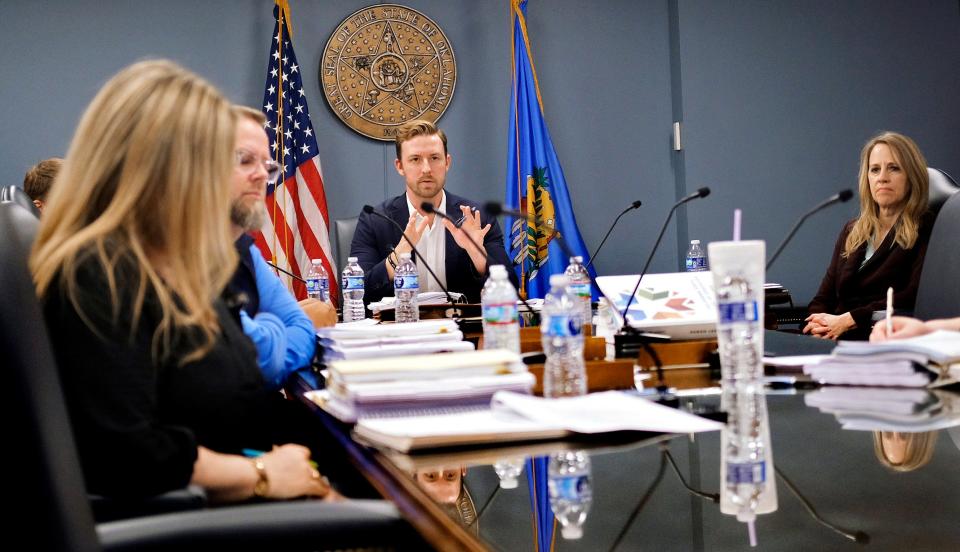
The board also approved new information literacy standards and financial literacy standards for Oklahoma schools.
The rules and standards approved — all by 4-0 votes — by the board on Thursday now will go to the state Legislature for approval, then to Gov. Kevin Stitt, who must also approve them before they become permanent. Here's what we know about key rules changes:
School accreditation would be tied to academic performance
The State Board of Education determines the accreditation status of every Oklahoma school every year, checking to ensure they meet minimum state standards.

The changes regarding accreditation would add an entire section to the Oklahoma Administrative Code rules that govern the Oklahoma State Department of Education. Under the new rules, starting with data from the current school year, it would be considered an academic deficiency if a school district has fewer than 50% of all students testing at or above the basic performance level in state assessments for either mathematics or English Language Arts. Assessments for third through eighth grades and 11th grade would be combined.
A new level of accreditation, called “accredited with distinction,” would be added for districts that had no deficiencies in the previous academic year and that applied for and received a distinction audit with the highest-level recommendation. The changes also would give a “health and safety deficiency” to any district that continued to employ a noncertified employee who is convicted of, or pleads no contest to, a felony.
Walters said setting the standards "will ensure every Oklahoma student gets a quality education while providing necessary supports for districts that need more help.”
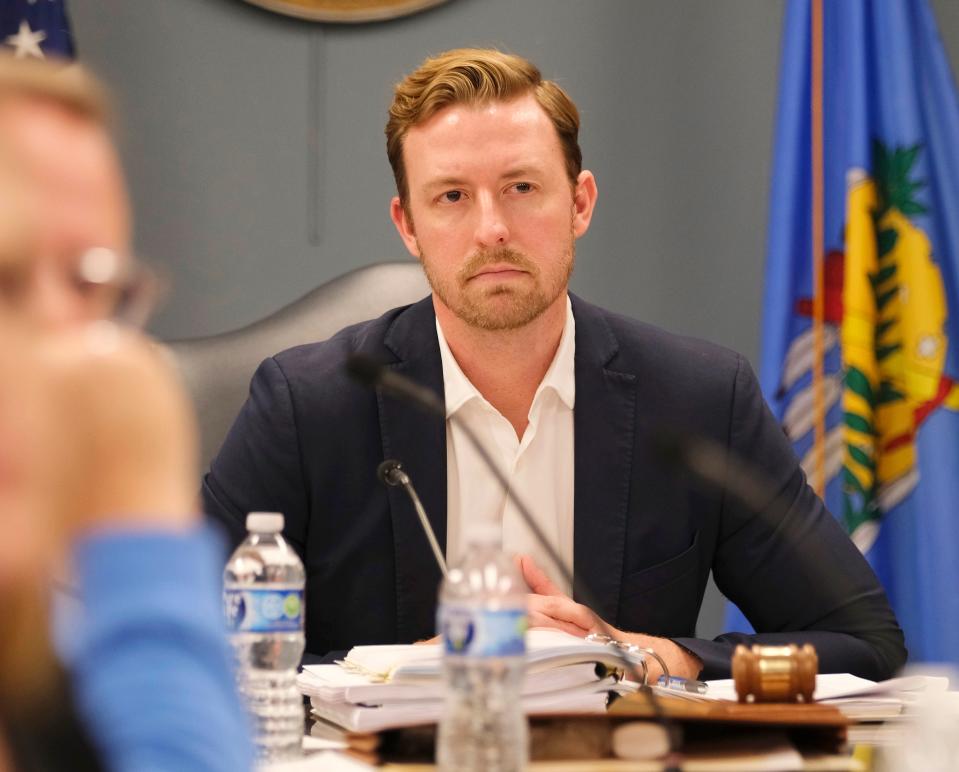
But since Walters announced the proposal in November, it has received pushback from critics who said the new rules would adversely affect urban districts, districts with a high number of high-poverty students and districts with high numbers of special education students. Walters rejected that criticism.
Documents prepared by state Education Department officials as part of the board presentation said, “The agency also rejects the implied assertion that poverty necessitates that a school fails at teaching basic reading and math." The department said that "requiring a school teach basic reading and math to at least half of the students served is not an unreasonable standard.”
Ryan Walters follows Gov. Kevin Stitt's lead on DEI programs

In December, after Gov. Kevin Stitt issued an executive order concerning DEI programs, Walters unveiled his own proposal. It would forbid public school districts from using funds, property or resources to grant or support DEI positions or departments, and, among other things, would prohibit requiring any DEI education or training.
Stitt and Walters appear to be swimming against the cultural tide, as most major businesses and many organizations have some sort of DEI policy in place. However, to Walters it's important to stand against DEI training and told the board Thursday it is bound by Stitt’s executive order on the subject.
“I applaud the governor for his (executive order),” Walters said. “I think he did a great job. I’ve talked about DEI being very destructive in our schools and our institutions.”
New rule proposal prompted by issue of school principal who also worked as drag performer
Another new rule says an Oklahoma teacher “may be dismissed, refused employment, or not reemployed after a finding that such person has, either in the presence of a minor or in a manner available to a minor online, engaged in sexual acts, acts that appeal to the prurient interest in sex as found by the average person applying contemporary community standards, or acts that excessively promote sexuality in light of the educational value of the material and in light of the youngest age of any student with access to said material.”
Walters announced this rule after dueling for months with Western Heights Public Schools in Oklahoma City, which had hired an elementary school principal who performed as a drag queen during his personal time. The district accepted that principal’s resignation earlier this month, which he has said was forced.
The state Education Department has dismissed critics who say teacher standards should be only those that are listed in state law, not agency rules, and that the language in the rule is vague.
Voluntary prayer and a moment of silence already are law in Oklahoma, but board still approved a new rule

Oklahoma schools already are required by law to have a daily moment of silence, during which students are allowed to participate in voluntary prayer. Even so, the state board is proposing a rule that would require Oklahoma’s 500-plus school districts to “adopt a policy that permits those students and teachers who wish to do so to participate in voluntary prayer.” It would threaten a district’s accreditation if it’s not found to be in compliance.
Walters wanted the rule put into place after a kerfuffle involving Prague Public Schools, which was hosting daily prayers at an elementary school as part of a “Rise and Shine” program. The Freedom From Religion Foundation sent the district a letter calling the practice unconstitutional and asking the district to cease the practice. The district did so, raising Walters’ ire.
“This is a cornerstone of the state, having religious liberty protected,” Walters said.
Walters remains at odds with nonprofit agency that provides training for local school boards
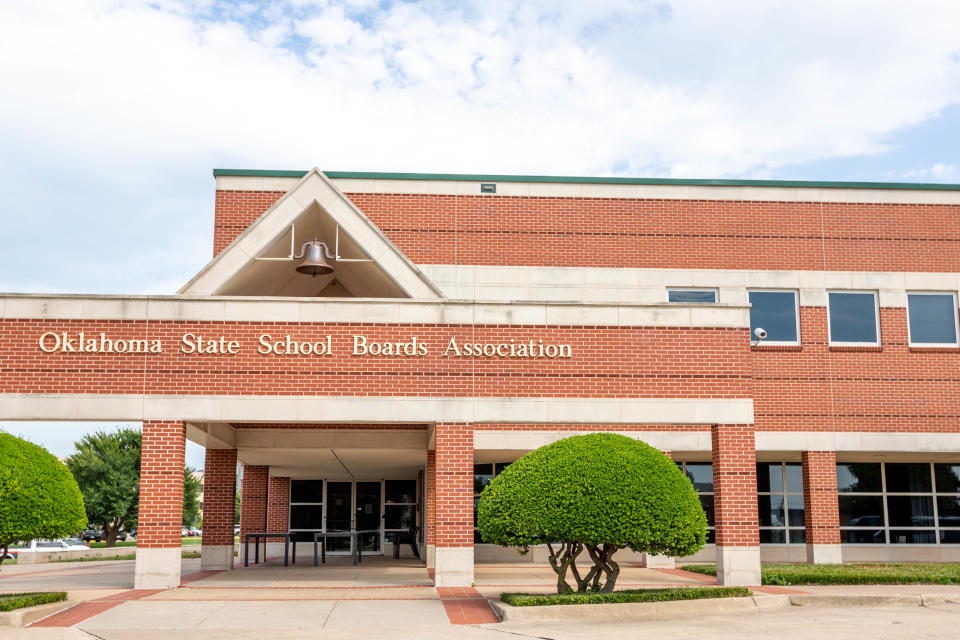
For decades, the Oklahoma State School Boards Association (OSSBA), a nonprofit public school advocacy and service organization, has provided training that’s required by state law for members of local school boards. That training then is accepted by the state Education Department.
The school boards association is governed by a 32-member board of directors composed of local school board members, who are elected by taxpayers of their respective districts. Without warning in January, Walters announced the state Education Department would end its agreement with the association. The new rule would force the Oklahoma State School Boards Association to go through a typical vendor process to provide services, with no guarantee the training it offers would be accepted by the state Education Department.
Without providing examples, Walters has said the association is among agencies that "work in tandem with national extremist groups that seek to undermine parents, force failed policies into the schools, and work against a quality education in Oklahoma."
State board member Zachary Archer said during Thursday’s meeting he found the association’s training helpful during his time as a member of the Hammon Public Schools board, but still voted to approve the rule change.
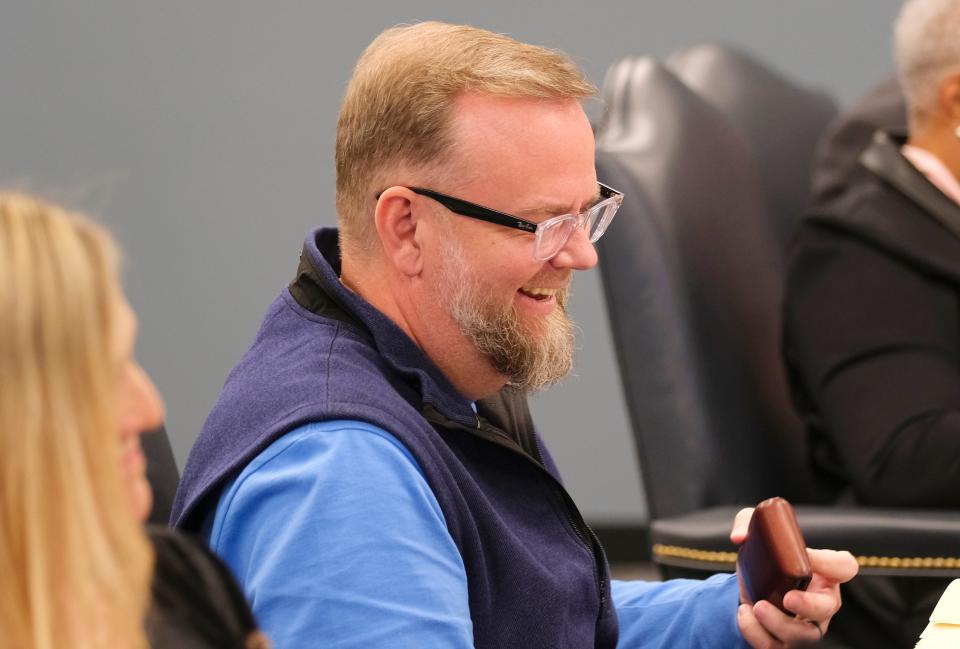
An association spokesperson wasn’t available for comment on Friday.
New Information Literacy and Financial Literacy standards also approved
In addition to the rules changes, the board approved a new set of standards for Oklahoma schools regarding information literacy and financial literacy.
“Information literacy” is a traditional term for the standards taught by a certified school librarian. Information literacy standards also are referred to as media or digital literacy. The standards reflect skills concerning how to access, evaluate, create with and ethically share information.
For decades, the state Education Department has worked with the Oklahoma Library Association — which is part of the American Library Association ― on information literacy standards. But Walters called the existing standards “woke” in December and said they constituted "taxpayer-funded, woke indoctrination of our children." Without providing examples, he criticized the association for fighting against "filtering of internet pornography in libraries" and attacking "parents who just want libraries to protect children and reflect their communities."
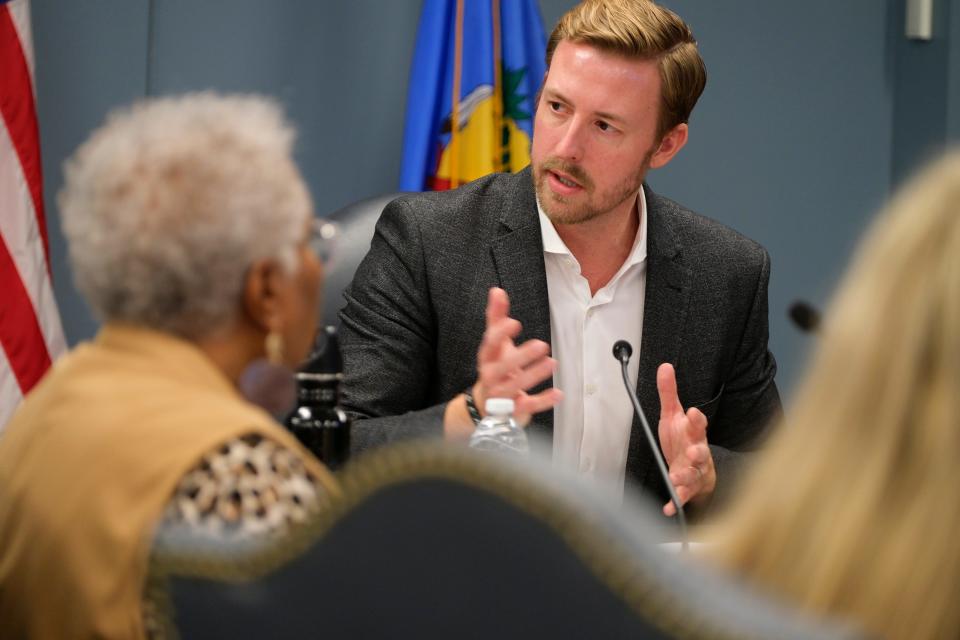
The new standards were developed using “Ohio’s Library Guidelines for Learners” from the Ohio Department of Education and “Oklahoma Academic Standards for English Language Arts,” developed in 2021.
Dana Belcher, the president of the Oklahoma Library Association, said the state Education Department didn’t consult with the organization on the new standards.
“I’m sure individual members sent in their own comments (about the proposal), but the association was not contacted,” Belcher said.
This article originally appeared on Oklahoman: Oklahoma education board approves rules on DEI, accreditation, prayer

